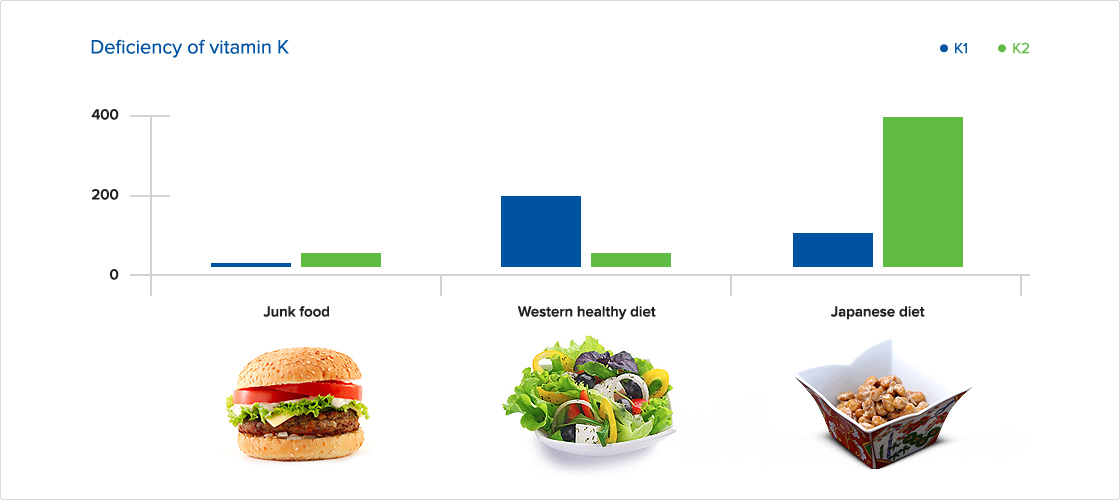Deficiency
Even the healthiest diets fall short on delivering all the nutrients the body requires to operate optimally. This is particularly true for Vitamin K2.
It has long been believed that vitamin K deficiency is rare due to dietary intake and contribution from microbial biosynthesis in the gut. Yet published studies show that the majority of both children and adults are vitamin K deficient.
Consider that dietary intake data from the 1950s and early 2000 in the UK show that consumption of vitamin K is now lower than it once was – a likely a consequence of changing diets, as well as food supply. For example, between the 1950s and the 1990s, fats and oils became a larger part of most Western diets than vegetables.

